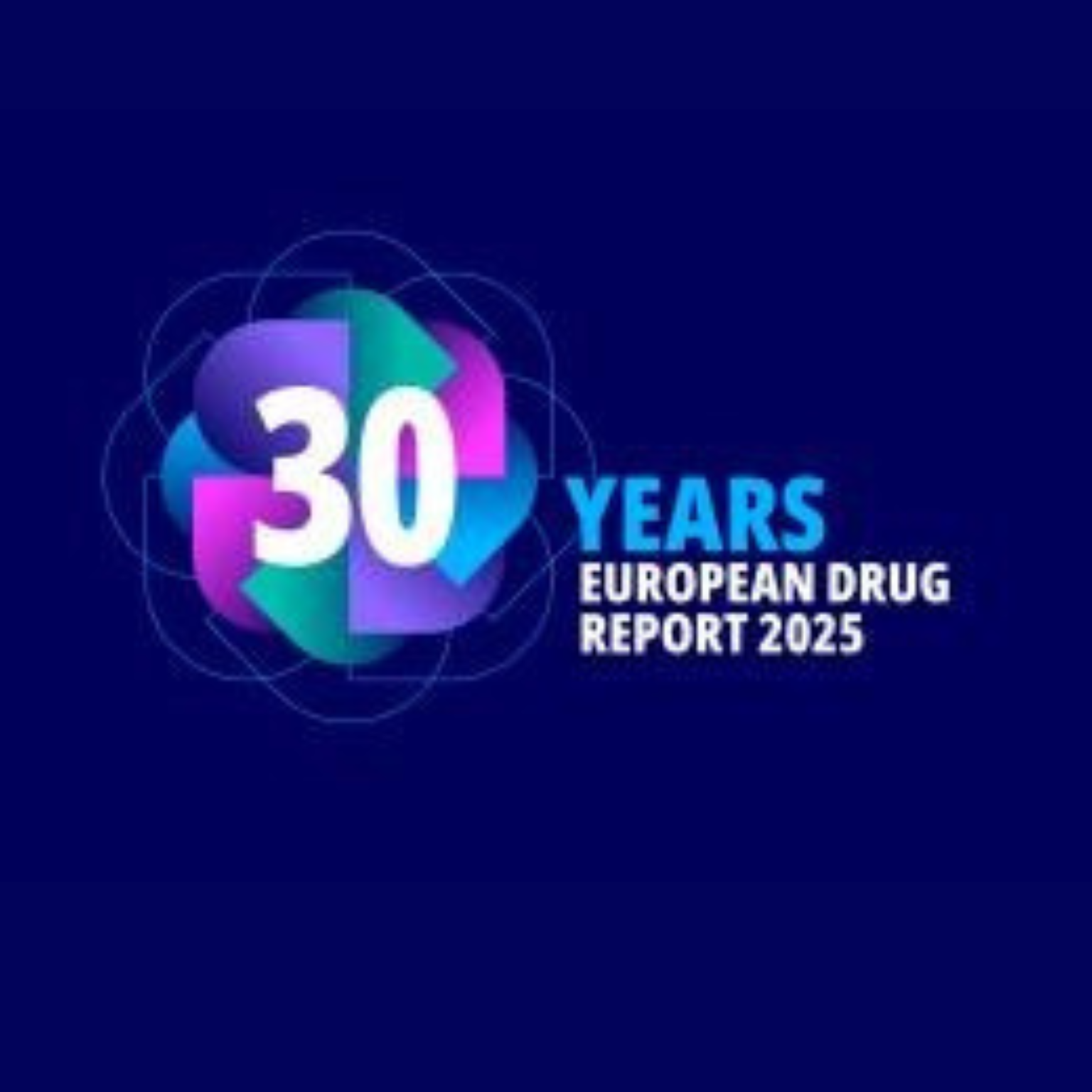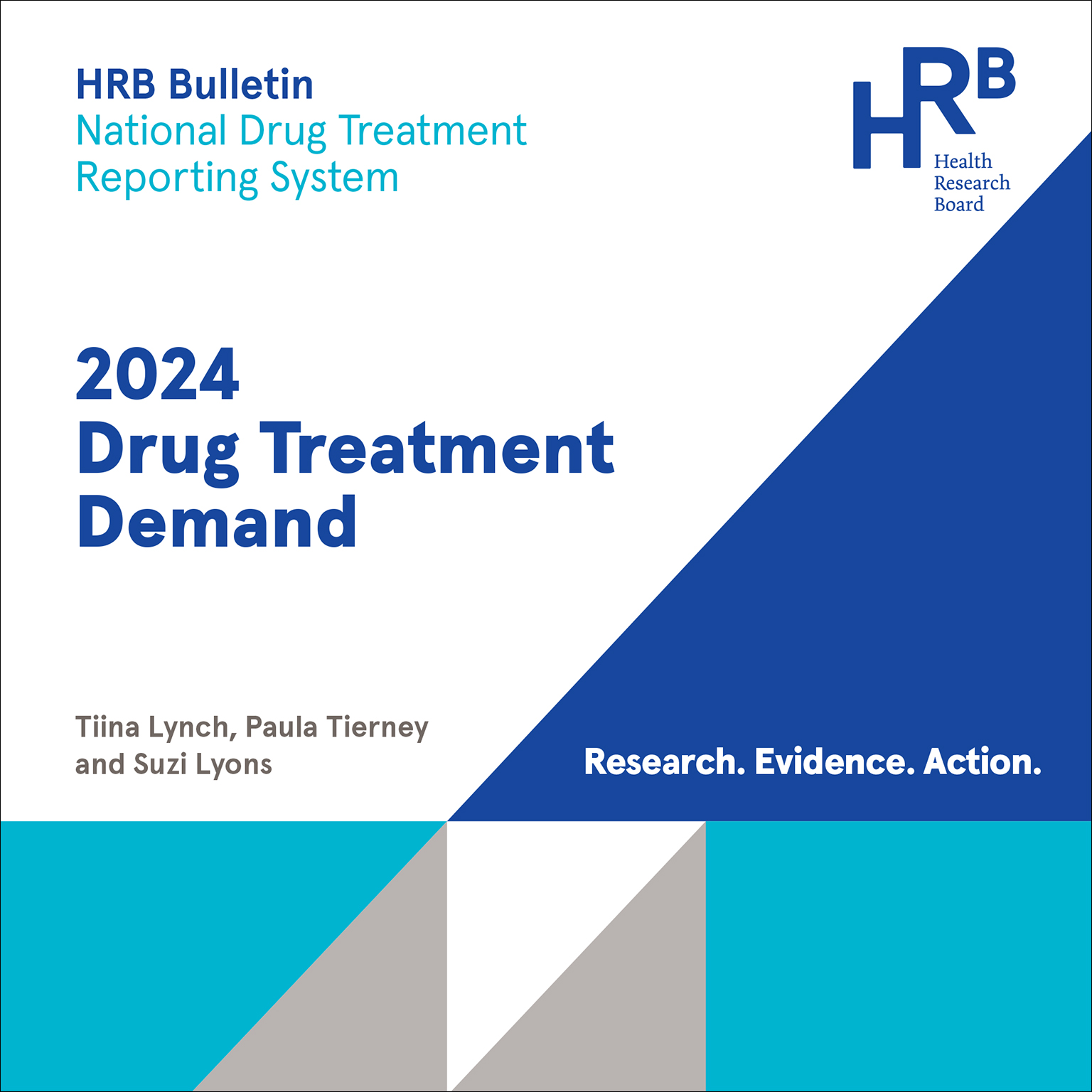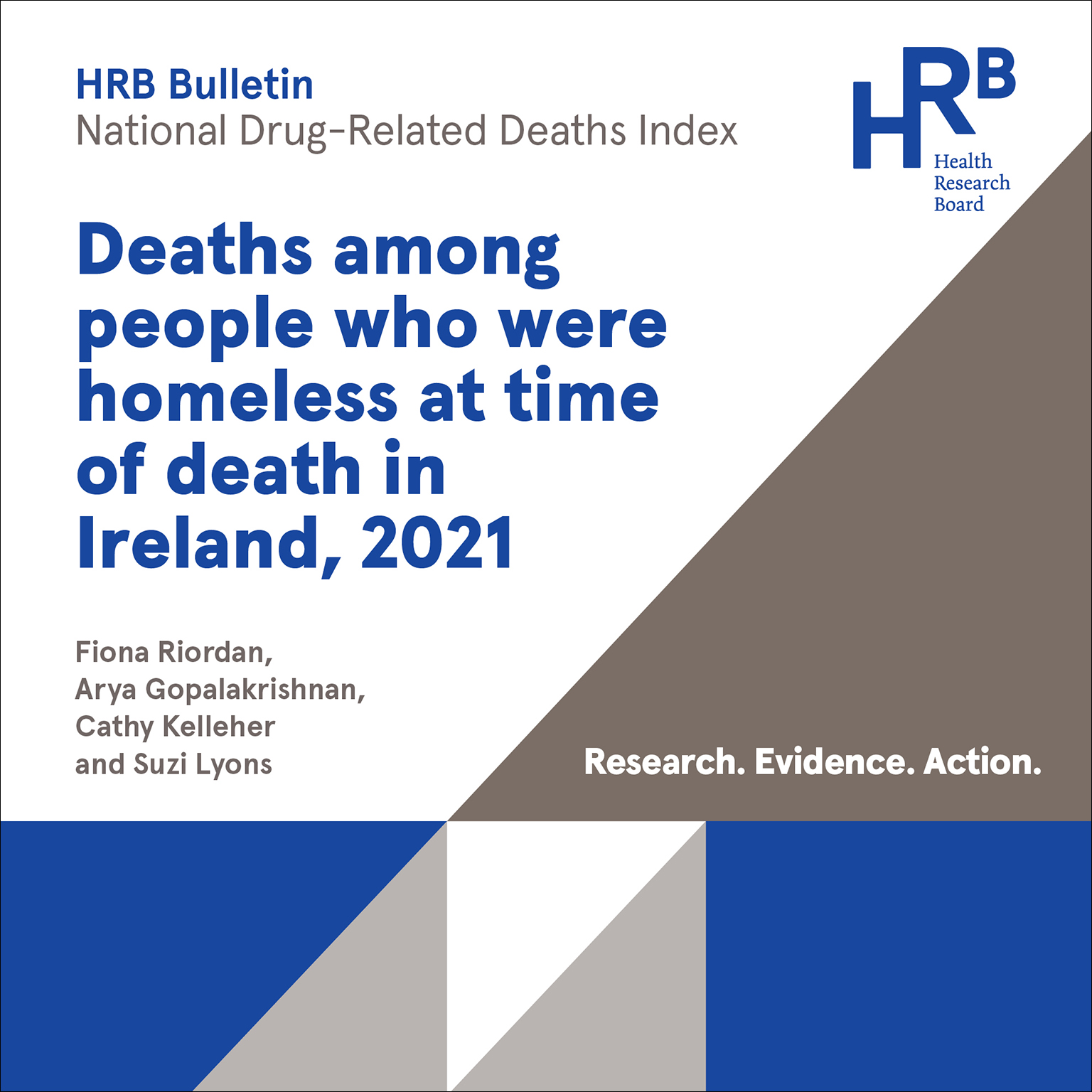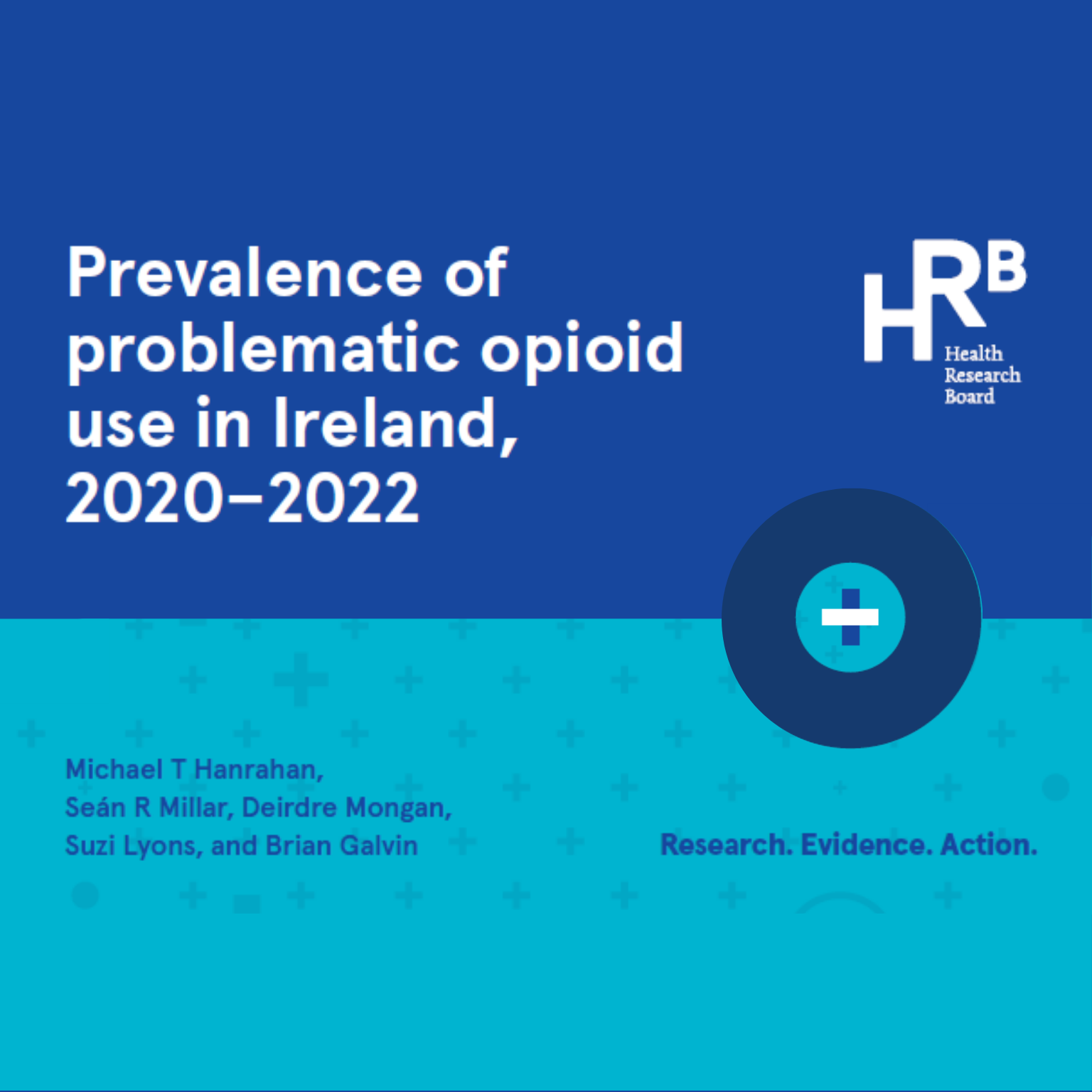Drug-related deaths – HRB publishes latest figures
According to the latest drug-related death figures* from the Health Research Board, 376 people died in 2017 from overdose (poisoning deaths) and there were 410 deaths as a result of medical causes or trauma among people who use drugs (non-poisonings).
4 min read - 12 Dec 2019
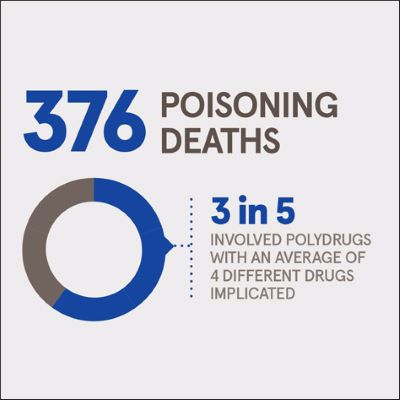
- Cocktails of drugs contribute to three in five poisoning deaths
- There is an increase of cocaine poisoning deaths
- Alcohol continues to be the main drug implicated in deaths, alone or with other drugs
According to Dr Darrin Morrissey, Chief Executive at the HRB,
‘Behind these numbers are people whose lives were cut short. By collecting these data, the HRB can monitor trends over time which helps service providers design appropriate interventions to support recovery and save lives.’
The Health Research Board reports on poisonings deaths (also known as overdose) which are due to the toxic effect of a drug, or combination of drugs, and on non-poisonings which are deaths as a result of trauma, such as hanging, or medical reasons, such as cardiac events, among people who use drugs whether or not the use of the drug had a direct impact on the cause of death.
Commenting on the findings from the HRBs National Drug Related Death Index, Ena Lynn, Researcher Officer at the HRB, says,
‘More than one person died from overdose each day in 2017. They would typically have been male, aged in their 30’s or 40’s and taking a mixture of drugs, many of which are legal, such as methadone, alcohol, or benzodiazepines. A cocktail of drugs was present in 3 in 5 poisoning deaths. Mixing drugs is known to cause more complications and increases the risk of overdose as is evident in this HRB data.’
‘There were 53 cocaine poisoning deaths in 2017, which equates to one death per week. We found cocaine was often mixed with other drugs, in particular benzodiazepines and methadone. Given the sharp increase we have seen in the demand for treatment for cocaine in recent years, we hope that these figures highlight the risks associated with cocaine use.’
Poisoning deaths in 2017
- A total of 376 people died as a result of overdose in 2017.
- Alcohol was implicated in 125 poisoning deaths in 2017 which represents one third of all poisoning deaths and alcohol alone was responsible for 61, or one in six poisoning deaths.
- Prescribable drugs were implicated in 253 (two in every three) poisoning deaths.
- Benzodiazepines were the most common prescription drug group, implicated in 139 individual poisoning deaths.
- Methadone (an opiate substitute) was implicated in 95 (one quarter) of all poisonings.
- Heroin was implicated in 77 poisoning deaths in 2017.
- Cocaine-related poisoning deaths increased from 42 in 2016 to 53 in 2017.
Mixing drugs
Polydrug use or drug ‘cocktails’ significantly increases the risk for fatal overdose.
- In 2017 there were 218 deaths as a result of mixing drugs, with an average of four different drugs taken.
- All benzodiazepine related deaths (139) involved other drugs, mainly opioids.
- 64 deaths where alcohol was implicated involved other drugs, mainly opioids.
- 85 deaths where methadone was implicated involved other drugs, mainly benzodiazepines.
- 66 deaths where heroin was implicated involved other drugs, mainly benzodiazepines.
Non-poisoning deaths in 2017
- There were 410 non-poisoning deaths. Non-poisoning deaths are categorised as being due to either trauma (196 deaths) or medical causes (214 deaths).
- The main causes of non-poisoning deaths categorised as trauma were hangings.
- Deaths due to hanging increased from 98 in 2016 to 114 in 2017.
- The majority of deaths due to hanging were men. However, there was an increase in the number of women who died by hanging, from 16 deaths in 2016 to 25 in 2017.
- Six in every ten (63%) people who died as a result of hanging had a history of mental health problems.
- The main cause of non-poisoning deaths categorised as medical were cardiac events.
- There were 56 people who died from cardiac events
- The median age for deaths due to medical causes was 49 years in 2017, which may indicate an ageing cohort of people who use drugs in Ireland.
The full report is available to download from the HRB website at www.hrb.ie/publications and www.drugsandalcohol.ie/31275. An infographic that outlines key data is also available for download.
*Data for the HRB’s National Drug-Related Deaths Index is collected from four sources: coronial files, the Hospital In-Patient Enquiry scheme, the Central Statistics Office and the Central Treatment List. Data is cross checked and matched across the different sources by HRB staff to give an accurate picture of the number of drug-related deaths in Ireland.
Note: The 2017 figures are likely to be revised upwards when new data become available from closed inquest files.
ENDS
For further information, infographics or to organise interviews with experts, please contact:
Gillian Markey – Communications Manager, Health Research Board
m 087 2288514 t +353 1 2345103 e gmarkey@hrb.ie
The Health Research Board (HRB) is the lead agency supporting and funding health research in Ireland. We manage four health information systems in the areas of alcohol and drug use, drug deaths, disability and mental health and generate evidence to inform health policy. Our aim is to improve people’s health, build health research capacity and underpin developments in health service delivery.
4 min read - 12 Dec 2019
